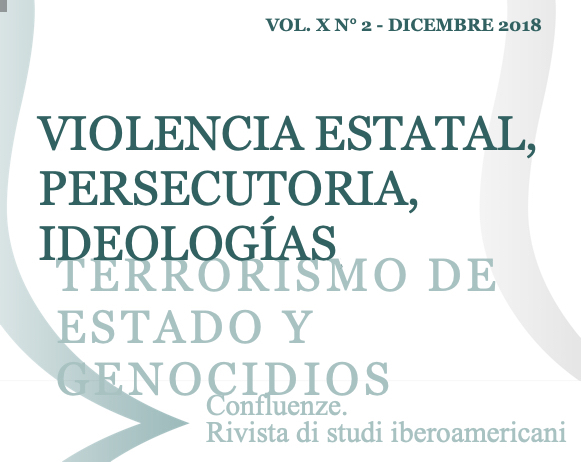Tribunais de papel. O palimpsesto do romance policial e Sempreviva
DOI:
https://doi.org/10.6092/issn.2036-0967/8887Keywords:
Brazilian dictatorship, Lei de Anistia, memory, detective novel, justiceAbstract
The aim of this study is to analyze the way in which detective novel as a genre shapes narratives that discuss the function of law and, therefore, the existence of a(n) (im)possible justice, when it is (not) put into existence by the institutions responsible for it. The starting point of this analysis will be Antônio Callado's novel, Sempreviva, written in 1981 during the transitional period towards democracy when the Amnesty Law, institutionalizing an official amnesia, makes it difficult to access reality and to process trauma, identifying, instead of a change, the persistence of the past into the present.
Downloads
Published
How to Cite
Issue
Section
License
Copyright (c) 2019 Agnese Soffritti
The copyrights and publishing rights of all the texts on this journal belong to the respective authors without restrictions.
This journal is licensed under a Creative Commons Attribution 4.0 International License (full legal code).
See also our Open Access Policy.
Metadata
All the metadata of the published material is released in the public domain and may be used by anyone free of charge. This includes references.
Metadata — including references — may be re-used in any medium without prior permission for both not-for-profit and for-profit purposes. We kindly ask users to provide a link to the original metadata record.






